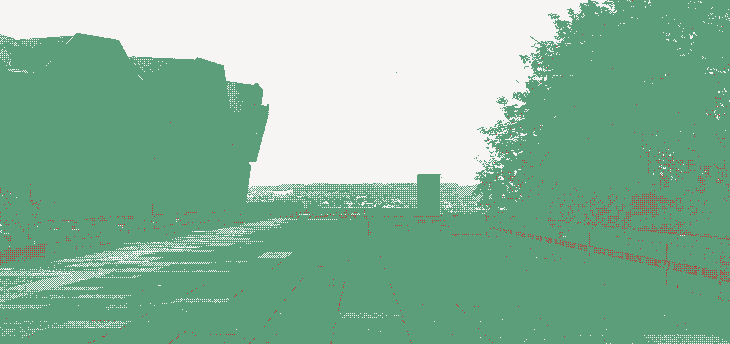
Fiona Schrading 📧
Andrei Mihail
Hannah Spruce
Rozemarijn de Kwaasteniet
Anamaria Depner
We invite colleagues from all disciplines to join us in exploring intergenerational dynamics of loss, transformation, and renewal in deindustrialised environments through a more-than-human lens.
Context
Our case study draws on ethnographic research from three European sites – Saarland, Glasgow, and the Danube Delta. Like the Ruhr Valley, these sites have complex histories of deindustrialisation, extractivism, ageing populations, labour migration, and disinvestment. What today are ruins – visible and present in every day life – once were promises for a safe and predictable future. Local communities now face the profound challenge of re-imagining these places and their possible futures in “collateral afterworlds” (Wool & Livingston 2017) while having to deal with the never fulfilled futures they took for granted “before ruins”.
Theoretical background
The workshop seeks to engage with the intergenerational dynamics of deindustrialised places. We ask: How do narratives of progress, decline, loss, transformation, renewal, and nostalgia circulate through generations confronted with material and more-than-human worlds that are both ruins and memorials of a life “before ruins”? We will work, experiment, and speculate about intergenerational dynamics in “once highly industrialized places” from an object-centered approach. We understand objects as “tangled objects” (Latour 2004) rooted in particular places and histories, composed of numerous attachments, relations, and entanglements. We are interested in how these objects are “sticky” in the sense that specific (generational) emotions and affects stick to them (Ahmed 2004).
Aims
Our aim is to collaboratively develop methodological approaches to researching deindustrialised sites from an object-centred and more-than-human perspective and thereby engage with these objects beyond their symbolic meaning—approaching them as material agents in intergenerational processes of remembering, transforming, and imagining deindustrialised places. Through shared experimentation and speculative engagement, we seek to generate new analytical and (neo)materialist, more-than-human perspectives on intergenerational dynamics in post-industrial contexts. With this approach, we want to contribute to a re-storying of intergenerational dynamics of loss, transformation, nostalgia and renewal, and to conceptualise generations through a more-than-human lens.
Who are we looking for?
We warmly invite participants from all disciplines in and beyond academia who are interested in re-assessing deindustrialised places through
- materialist or object-focused methods
- more-than-human perspectives and/or
- in relation to intergenerationality
No prior experience is needed in these areas. Minimum of 10 participants, maximum 30 participants. The case language is English.
What should I bring to the case?
We will bring materials from our sites and warmly invite you to contribute materials from the deindustrialized places you are interested in. These could include:
- (Everyday) physical objects/things that relate to (de)industrialization and intergenerationally
- Printed photographs of more-than-human materialities and environments
- Data/textual excerpts where appropriate (e.g., observation notes, interview excerpts, vignettes)
- Sketches, plans, drawings, etcetera related to the conference theme and the case focus.
We ask: What stories do these objects tell us? How do they intervene, disrupt, or refocus dominant narratives around these places? What new narratives might emerge if we work with objects to re-story (post-)industrial transformations and related intergenerational dynamics?
How will the day look?
Tentative schedule:
09:30 – 11:30: Session 1: thematical & methodological introduction followed by analytical work with the objects
11:30 – 12:30: Lunch Break
12:30 – 14:30: Session 2: Creating the object-based installation
14:00 – 15:00: Break
15:00 – 17:00: Session 3: Creative writing session
As outcomes of our case session, we will co-create an object-based installation (session 2) and a series of short object vignettes (Session 3) that emerge from and around the objects we bring to the case study.
Also, we provide opportunities to stay in contact and continue collaborating after the case session in Bochum (e.g., through an online working group with a focus on researching deindustrialized sites from object-centered and more-than-human perspectives).
More information about the research project that we draw on can be found here: https://wastelandfutures.com/